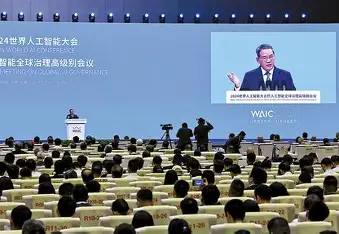At the 2025 World Artificial Intelligence Conference in Shanghai, Chinese Premier Li Qiang proposed the creation of a global AI cooperation body. He warned that without joint oversight, a small group of nations or corporations could monopolize the future of artificial intelligence. His proposal focused on shared responsibility, inclusive participation, and closing the innovation gap between developed and developing countries. China’s message emphasized collaboration rather than confrontation, inviting all governments and stakeholders to join a new era of international AI governance.
Premier Li pledged that China would share AI tools, research, and development strategies with less developed nations. He described artificial intelligence as a public good and argued that emerging economies must not be left behind. China’s plan promotes open-source ecosystems and transparent cooperation. This includes technical support for infrastructure, education, and regulation in the Global South. The Chinese government framed this proposal as a corrective to the dominance of Western companies in shaping AI norms.
The Chinese government unveiled a detailed AI governance action plan in Shanghai. The plan outlines clear steps to support cross-border collaboration, encourage responsible innovation, and develop standards for AI security and ethics. Officials also proposed that Shanghai host the secretariat for the future global AI cooperation body. The plan calls on industry leaders, research institutions, and regulators to contribute to open and equitable AI growth across regions. Chinese officials said the initiative remains open to all willing partners, regardless of political alignment.
While China promotes multilateral oversight, the United States has focused on accelerating domestic innovation through private sector leadership. Washington’s recent AI policy framework prioritizes national competitiveness over international alignment. U.S. tech firms like OpenAI, Meta, and Anthropic continue to develop AI models with minimal centralized regulation. This divergence has deepened global uncertainty about the future of AI safety, ethics, and accessibility. The gap between U.S. and Chinese policy responses underscores a growing need for consensus on cross-border AI standards.
China’s call for multilateral AI governance reflects a strategic effort to shape the global regulatory conversation. For professionals and policy-makers, this development raises important questions about the future of international tech norms. The proposed action plan could impact AI data sharing, trade rules, and research standards. Global audiences face increasing pressure to define shared frameworks before technological divides widen. As artificial intelligence becomes a central force in economies and defense systems, inclusive governance models grow more urgent.



